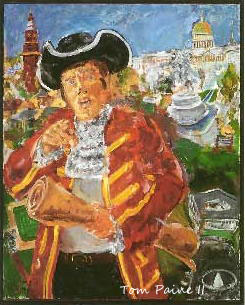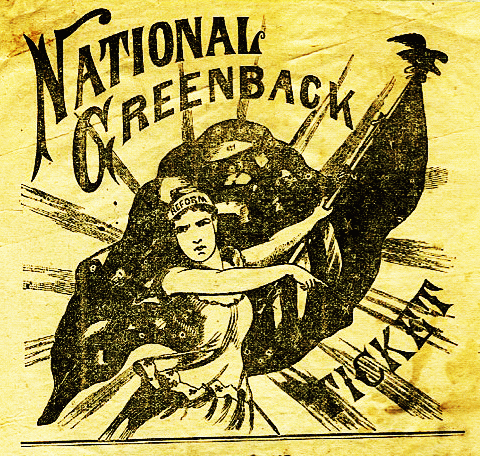Ninth Circuit Leaves Door Open To Suit Against GAO Re Coins Act
Rehearing Sought Re Treasury's Greenback Misrepresentation
Clifford Johnson, OpEdNews
SAN FRANCICSCO, July 15, 2014 -- On May 30, 2014, a Ninth Circuit panel of three justices perfunctorily affirmed dismissal for lack of standing in Johnson v. United States Dept. of the Treasury, No. 12-16775, a greenbacker lawsuit I filed in 2012. On July 14, 2014, I filed a Petition for Rehearing En Banc. [1]
The lawsuit seeks findings of misrepresentation by the Treasury: (1) re the differences between United States notes and Federal Reserve notes--the Treasury says there are no functional differences; and (2) re Treasury approvals of GAO estimates of the benefits of the Coins Act, now stalled in committees [2]--the GAO grossly underreports the reduction in public debt that would accrue from eliminating the Federal Reserve $1 bill, to be replaced by $1 United States coins. It is alleged that these hard-fact misrepresentations intentionally impair my various petitions for new issues of United States currency versus Federal Reserve currency, in violation of my First Amendment right to petition.
I apologize for this terse resume of the litigation. For a broader, gentler summary of the lawsuit,
see my article Federal
Court Affirms Sweeping "Bully Pulpit" Government Right to Lie; re the greenback issue, see Lincoln's
Buried Bank Note Veto Applies Today; and re the Coins Act
controversy (before it was called the Coins Act), see How
The One Dollar Coin Can Cure The Economy. This article is essentially an update, with substantial quotations from the appellate record.
In the following, quoted paragraphs are italicized. The Ninth Circuit panel's decision has three parts.
PART 1
The panel's decision begins as follows:
Clifford Johnson appeals pro se from the district court's judgment dismissing his 42 U.S.C. section 1983 [sic] action alleging that the United States Department of the Treasury and the Secretary of the Treasury violated his First Amendment right to freedom of expression by publishing statements about Federal Reserve notes that are contrary to Johnson's views and allegedly false.
An attorney could reasonably hope that, after over a year's wait, a panel of three justices affirming dismissal would get the only statute cited in a terse opinion right. A pro se (self-represented) litigant cannot expect this minimal attention. The panel's citation of 42 U.S.C. section 1983 is ludicrous. The statute does not apply to federal defendants, is not alleged in the complaint, and is nowhere argued. The apposite statute, argued in my appeal briefs, is the Administrative Procedures Act, 5 U.S.C. section 702.
PART 2
The decision then affirmed dismissal for lack of standing by cutting and pasting the district court's entirely conclusory finding of a lack of standing, in full as follows:
The district court properly concluded that Johnson failed to allege the essential elements of Article III standing, including personal injury that is fairly traceable to defendants' allegedly false representations and likely to be redressed by an order granting Johnson a declaratory judgment. See Lujan v. Defenders of Wildlife , 504 U.S. 555, 560-61 (1992) (identifying three core requirements for standing under Article III of the United States Constitution); Valley Forge College v. Americans United , 454 U.S. 464, 474-75, 485-86 (1982) (no standing where allegations constitute nothing more than the "generalized grievances" of one who observes government conduct with which he disagrees).
By this ruling, the panel avoided reaching the government speech question that the complaint squarely raises. Here is the responsive point from the Petition for Rehearing (including footnotes but with references to the record deleted):
(Note: You can view every article as one long page if you sign up as an Advocate Member, or higher).






